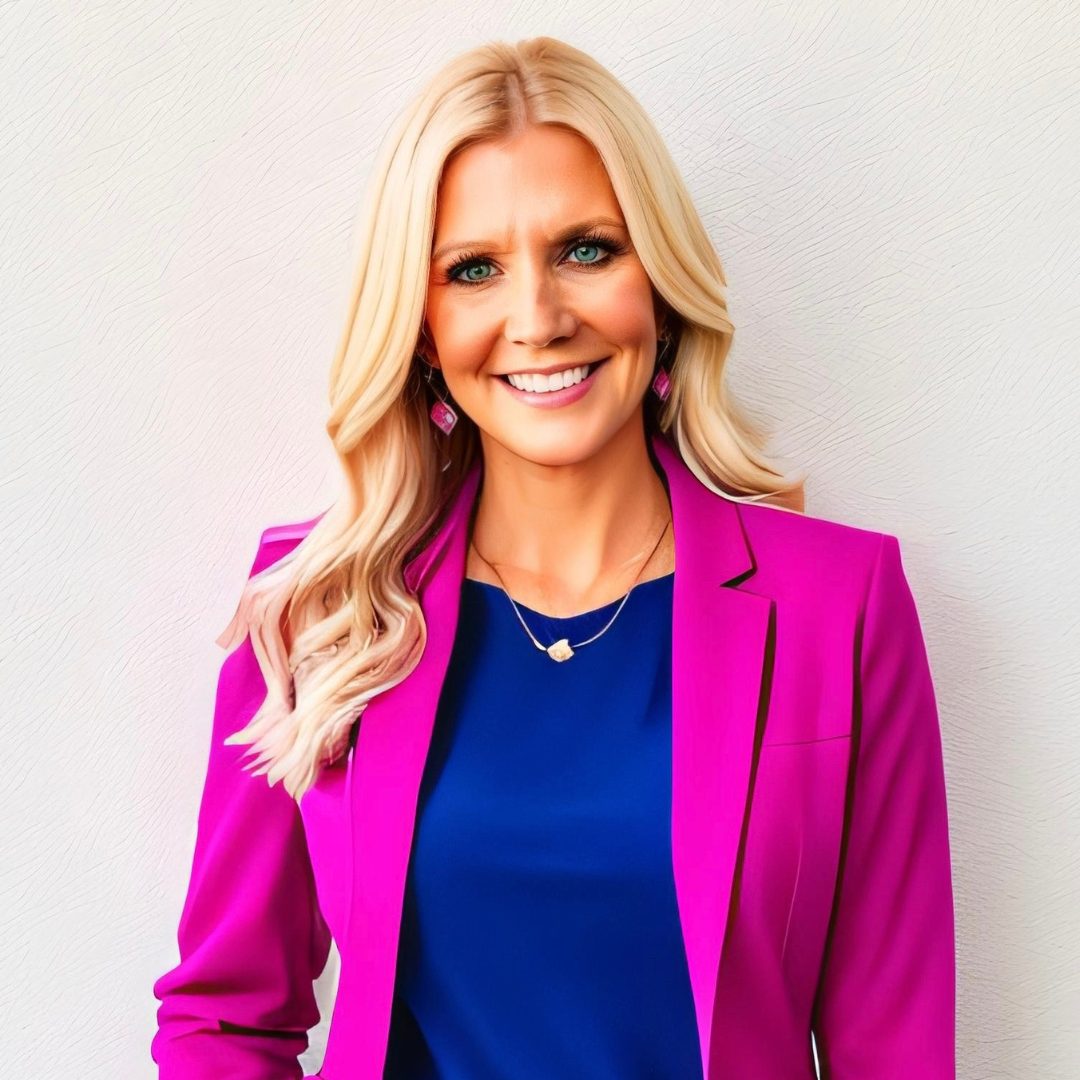In May 2023, the United States Surgeon General, Dr. Vivek Murthy, released a Surgeon General Advisory calling attention to the public health crisis of loneliness, isolation, and lack of connection in our country. Even before the onset of the COVID-19 pandemic, approximately half of U.S. adults reported experiencing measurable levels of loneliness. Disconnection fundamentally affects our mental, physical, and societal health. In fact, loneliness and isolation increase the risk for individuals to develop mental health challenges in their lives, and lacking connection can increase the risk for premature death to levels comparable to smoking daily.
Here are highlights of that interview
For over 13 years, Hera Hub has been an important gathering place for professionals to break out of the loneliness cycle and connect with other like-minded professionals for face-to-face connections.
The Wall Street Journal recently published an article
“The Loneliness of the American Worker – How the modern workday is fueling an epidemic of isolation”
Link to article
Felena Hanson sat down with Dr. Alisha Wilkins, a Remote Work Expert, to discuss her insights on the article and what can be done to combat this harmful epidemic.
Below are excerpts of the Wall Street Journal Article
More Americans are profoundly lonely, and the way they work—more digitally linked but less personally connected—is deepening that sense of isolation.
Nick Skarda, 29 years old, works two jobs in logistics and office administration in San Diego to keep up with his bills. After a couple of years at the logistics job, he has one friend there. He says hi to co-workers at his office job but doesn’t really know any.
“I feel sort of an emptiness or lack of belonging,” he says. Juggling two jobs leaves Skarda exhausted, with little energy or time to grab drinks with co-workers. “It makes it harder to go in and give it your all if you don’t feel like anyone is there rooting for you,” he adds.
Employers and researchers are just beginning to understand how workplace shifts over the past four years are contributing to what the U.S. surgeon general declared a loneliness health epidemic last year. The alienation affects remote and in-person workers alike. Among 1-800-Flowers.com’s 5,000 hybrid and fully on-site employees, for instance, the most popular community chat group offered by a company mental-health provider is simply called “Loneliness.”
 Consider these phenomena of modern work:
Consider these phenomena of modern work:
- More than 40% of fully remote workers polled in a 2023 survey of working parents by Bright Horizons said they go days without leaving the house.
- Those who work in-office spend nearly a quarter of their time in virtual meetings, while face-to-face meetings account for only 8% of their time, according to data from real-estate company Cushman & Wakefield.
- Americans have tripled the time spent in meetings since 2020, data from Microsoft’s suite of business software show—leaving less time for the casual interactions that social scientists say foster happiness at work.
- Among 101,000 people using the professional coaching platform BetterUp since 2019, 68% said they knew their co-workers on a personal level, down from 79% five years ago.
It is a marked shift from even a decade ago, when bonds fostered at work helped compensate for declining participation in church, community groups and other social institutions. As the American workday becomes more faceless and scheduled, the number of U.S. adults who call themselves lonely has climbed to 58% from 46% in 2018, according to a recent Cigna poll of 10,000 Americans.
The faceless workday
The disconnection is driving up staff turnover and worker absences, making it a business issue for more employers, executives and researchers say. Cigna, the health-insurance company, estimates that loneliness is costing companies $154 billion a year in absenteeism alone.
“Work is social, it’s a lot more than a paycheck,” says James McCann, founder and chairman of 1-800-Flowers.com.
 Earlier this year, 1-800-Flowers.com moved from three days in the office to four to boost a sense of connectivity among workers. It has also begun tapping workers across teams to serve as designated hosts during lunchtime, encouraging people to sit with colleagues they don’t know in common areas and chat, and suggesting conversation topics.
Earlier this year, 1-800-Flowers.com moved from three days in the office to four to boost a sense of connectivity among workers. It has also begun tapping workers across teams to serve as designated hosts during lunchtime, encouraging people to sit with colleagues they don’t know in common areas and chat, and suggesting conversation topics.
While today’s workers have more ways to connect than ever, “there are only so many memes and jokes you can send over Slack,” says Maëlle Gavet, chief executive of Techstars, a pre-seed fund that has invested in 4,100 startups. “We tend to have more and more people with back-to-back calendars, more meetings and less connections.”
Gavet says that is especially the case for hybrid workers on in-office days, which they tend to use to dash from one meeting to the next.
Paradoxically, meetings can make people feel lonelier—and even more so if the meetings are virtual, behavioral researchers say. A 2023 survey by employee experience and analytics company Perceptyx found people who described themselves as “very lonely” tended to have heavier meeting loads than less-lonely staffers. More than 40% of those people spent more than half their work hours in meetings.
In Cincinnati, Kelly Roehm says she came to chafe at the meetings—sometimes as many as 12—consuming her day after joining a consulting company in 2021. She would often feel her eyes glazing over as she multitasked on other screens.
“It’s like you’re a zombie, there but not there,” says Roehm, who lived 10 minutes from the office but worked mostly remotely because she says few colleagues typically came in. It is a more common setup as companies distribute teams across more locations: At Microsoft, 27% of the company’s teams all worked in the same location last year, compared with 61% in 2019.
She compares that experience with her time more than a decade ago at a company now owned by AstraZeneca. There, she enjoyed lots of social outlets at work: a Weight Watchers group and a lunchtime crochet club.
“Now if I were to think about asking, ‘Hey, do you want to participate in something like this,’ it would just sound weird,” says Roehm, who left this year to focus on her own career-consulting business. “There wasn’t that emotional attachment that made it difficult to say, it’s time to move on.”
The power of small talk
Office chit chat, sometimes an unwanted distraction, seems to provide more benefits than many people realize, says Jessica Methot, an associate professor at Rutgers University who studies social ties at work.
In a study of 100 employees at different workplaces, Methot and fellow researchers surveyed participants at points throughout the day. They found those who had engaged in small talk reported less stress and more positivity toward co-workers.
Even exchanging pleasantries with a coworker you barely know can help, says Sarah Wright, an associate professor at New Zealand’s University of Canterbury who studies worker loneliness.
“We used to think loneliness has to be overcome by developing meaningful relationships and having that degree of intimacy,” Wright says. “More and more, though, we’re seeing it’s these day-to-day weak ties and frequency of [interactions] with people that matters.”

Since the pandemic, workers in all settings have reported similar levels of loneliness
Share of workers who described themselves as being lonely a lot of the daySource: Gallup*Reflects workers whose jobs can’t be done remotely
Such interactions are substantially harder to replicate in a virtual environment. “The default now is, I have to schedule time with you, even if it’s five minutes, instead of just picking up the phone,” says Katie Tyson, president of Hive Brands, an online food retailer founded in 2020 as a fully remote company.
The frictions add up, she says. Last fall, the company added an office in New York where employees voluntarily gather a couple of times a week to foster more cohesion.
Coming to the office, even on a hybrid basis, tends to yield a roughly 20% to 30% boost in serendipitous connections, according to Syndezo, which analyzed survey data and email and messaging traffic from more than two dozen large companies.
Yet there are diminishing returns to time in person, says Philip Arkcoll, founder of Worklytics, which analyzes workforce data for Fortune 500 companies. Coming in once a month provides a significant boost in ties; two or three times a month adds a little more, Worklytics data show. Once or twice a week results in a smaller increase, though, and working in-person four or five days a week makes almost no difference.
A business priority
Ernst & Young has asked managers to use the first five minutes of team calls to engage in conversation “as real human beings,” says Frank Giampietro, whose title, chief well-being officer for the Americas, was created in 2021 to help support employees during the pandemic.
The professional-services firm is also training employees to spot and reach out to co-workers struggling with issues such as isolation. To date, more than 1,600 employees have taken the training.
One challenge is that American workers have sacrificed connection for productivity, says Julie Rice, co-founder of fitness chain SoulCycle. These days, with more business contacts preferring video calls, she finds breakfast meetings and coffee dates on her calendar have been replaced with Zoom. Though efficient, such video calls are less likely to yield conversations that can turn into useful professional connections or lasting friendships, she says.
Author: Te-Ping Chen – Te-ping.Chen@wsj.com
 Felena is a long-time entrepreneur and marketing maven. Her latest venture, Hera Hub, is a spa-inspired shared workspace and business accelerator for female entrepreneurs. This as-needed, flexible work and meeting space provides a productive environment for growing businesses. Hera Hub members have access to a professional space to meet with clients and to connect and collaborate with like-minded business owners, thus giving them the support they need to be prosperous.
Felena is a long-time entrepreneur and marketing maven. Her latest venture, Hera Hub, is a spa-inspired shared workspace and business accelerator for female entrepreneurs. This as-needed, flexible work and meeting space provides a productive environment for growing businesses. Hera Hub members have access to a professional space to meet with clients and to connect and collaborate with like-minded business owners, thus giving them the support they need to be prosperous.
Over the last decade, Hera Hub and its family of brands have helped over 13,000 women start or grow their businesses. Hera Hub is a Certified Public Benefit Corporation, which commits the company to higher standards of purpose, accountability, and transparency.
Felena is a published author and international speaker. Her book, “Flight Club – Rebel, Reinvent, and Thrive: How to Launch Your Dream Business” is available on Amazon.





